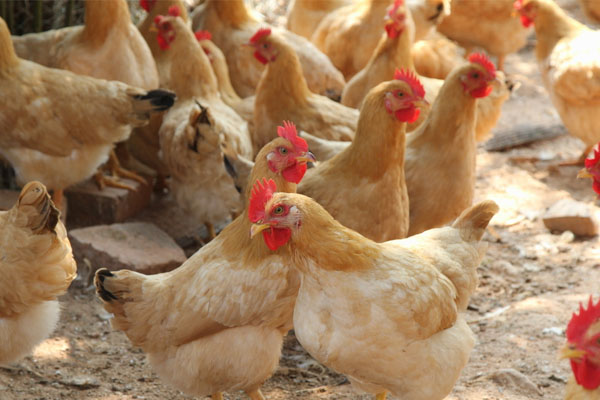After entering the summer, the weather is hot in summer, and the high-temperature barbecue mode is presented everywhere. How to raise chickens in the layer battery cages. Such weather conditions are a big test for chicken farmers. The chicken farmers are also showing their own magical powers, and they have made various efforts for the heatstroke prevention and cooling of the chicken house.
1. In the high temperature period in summer, the chicken population that is produced is slightly higher than the standard (30-50g). From the start of production to the peak of egg production, it is a big stress on the flock. It requires a lot of nutrients to meet the needs of physiology and egg production. In addition to consuming nutrients for daily intake, it also needs to use the reserves in the body. . If the weather is hot, the feed intake of the flock will drop significantly, so that the normal nutrient intake is far from meeting the peak demand for egg production, and it is bound to use a lot of nutrients in the body, causing egg fatigue. Therefore, it is necessary to increase the body weight to reduce the disease caused by insufficient hot feed intake for the chickens that are produced in the hot season.
2. Turn on the lights at night to increase intake and water intake and reduce heat stress. The weather is hot during the day, the feed intake of the flocks is greatly reduced, and the weather is cool late at night, which is conducive to the flocks. So you can turn on the light for 0.5 to 1 hour after 4 hours of light off (the added light is not recorded in the total lighting program). The advantages of this method: first, increase feed intake, make up for the lack of daytime consumption; second, the chickens fully drink water and activities to reduce heatstroke death.
3. Feed intake in the morning and morning should be sufficient. The temperature is lower in the morning, so try to take advantage of the opportunity to give plenty of feed. First, feed at night to ensure that the chickens will be eaten when they wake up. The second is to feed in the morning (the feed must be fed before 6:00 in the morning) to ensure that the chickens eat more before laying eggs. Feed, this can make up for the problem of insufficient feed.
4. Give plenty of cool drinking water throughout the day to prevent heatstroke and hot anal fever. Summer chickens should drink a lot of water every day to supplement the water lost due to heat dissipation, and regulate the balance of body fluids to prevent acidosis. In addition, laying eggs every day is a complex physiological process that requires a large amount of water to participate. Mild water shortage can cause dystocia and egg production. Heavy water shortage can cause a large drop in egg production or even death from heatstroke.
5. Daily feed intake, pay attention to the concentration of nutrients such as calcium, phosphorus and energy in the feed. In the hot environment, with the increase of drinking water and urinary amount, the potassium and sodium excretion in the body increases, so it is necessary to increase the content of potassium and sodium in the feed. According to the daily consumption ratio diet, the amount of nutrients added can be increased when appropriate. Supplemental potassium and sodium need to be fed all day, and calcium and phosphorus supplementation should be fed after 3:00 pm. In heat stress, the feed intake of chickens decreases, and increasing the concentration of the diet can partially overcome the decrease in production performance caused by insufficient feed intake. Compared to proteins and carbohydrates, lipids can reduce body heat, so fats can be added to the diet. The amount of addition is preferably from 1% to 1.5% of the diet, and vegetable oils having a high essential fatty acid content are preferred. It is necessary to add intermittently when adding fat, such as feeding for 3 days and stopping for 3 days. The bred chicken is supplemented with 3% high-fiber feed for the purpose of stretching the stomach, especially the white-shell hens. Vitamin C is a raw material for chicken synthetic hormones under heat stress conditions. Vitamin C synthesis is reduced, but chickens have increased hormone requirements, so 0.02% to 0.04% of vitamin C can be added to drinking water or feed to relieve heat stress, increase egg production rate and improve eggshell quality.
